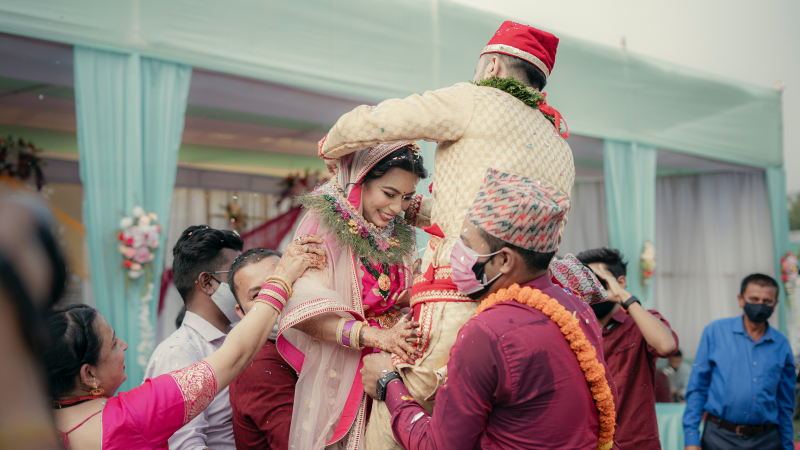The groom receives a tilak on his forehead during the Pokwanu ritual.
Pokwanu, also referred to as the Tilak ceremony, is a beautiful and traditional Hindu custom. Originating from ancient Vedic practices, it holds deep cultural and religious importance. The word "tilak" itself originates from Sanskrit, meaning a "mark." In this ceremony, a tilak, usually made from sandalwood paste, vermilion or turmeric, is carefully applied to the groom's forehead along with a sacred mark.
Applying the tilak during Pokwanu also represents the bride's family's formal approval and welcome of the groom. It is a gesture of love, respect, and appreciation for the groom, acknowledging him as a vital member of their family. The tilak on the groom's forehead serves as a reminder to him and to everyone else in attendance of the holiness of the marriage and the duties that go along with it.
The Pokwanu ceremony holds a special place in the hearts of both the groom and the bride's family. It serves as an opportunity for both families to come together and rejoice in the joyous occasion of their union. It also signifies the beginning of a lifelong bond between the two families, as they embrace each other with open arms, love, and warmth. Furthermore, the tilak holds immense spiritual importance, awakening the groom's consciousness as he embarks on the journey of married life.











